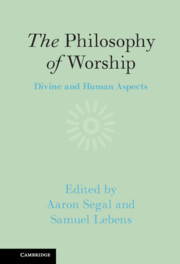Book contents
- The Philosophy of Worship
- The Philosophy of Worship
- Copyright page
- Contents
- Contributors
- Part I Two Introductions
- Part II What Is Worship?
- Part III Normative Aspects
- 7 Monotheism, Worship, and the Good
- 8 Can I Both Blame and Worship God?
- 9 Worship, Excellence, and Intrinsic Value
- 10 What’s Wrong with Idolatry, and Why There Is No Excuse
- 11 Owing God Worship
- 12 Worship for Atheists
- Part IV Forms and Functions of Worship
- Index
- References
9 - Worship, Excellence, and Intrinsic Value
from Part III - Normative Aspects
Published online by Cambridge University Press: 09 January 2025
- The Philosophy of Worship
- The Philosophy of Worship
- Copyright page
- Contents
- Contributors
- Part I Two Introductions
- Part II What Is Worship?
- Part III Normative Aspects
- 7 Monotheism, Worship, and the Good
- 8 Can I Both Blame and Worship God?
- 9 Worship, Excellence, and Intrinsic Value
- 10 What’s Wrong with Idolatry, and Why There Is No Excuse
- 11 Owing God Worship
- 12 Worship for Atheists
- Part IV Forms and Functions of Worship
- Index
- References
Summary
In this chapter, I explore and defend the idea that the core experience of worship involves a fitting response to the excellence of the divine, and that this can be understood in roughly the same ways that we understand fitting responses to excellence in general. I also defend a particular account of the excellence involved here – I argue that in worship, as in many other cases of fitting response to excellence, we are tracking intrinsic value. Along the way, I respond to Mark Murphy’s arguments for the conclusion that no creature could have intrinsic value.
- Type
- Chapter
- Information
- The Philosophy of WorshipDivine and Human Aspects, pp. 152 - 169Publisher: Cambridge University PressPrint publication year: 2025

